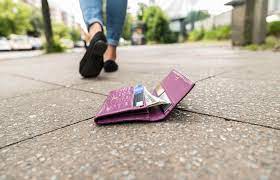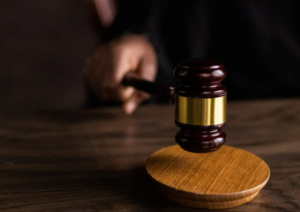8 Things to Do if You Lose Your Wallet

You are concerned because you misplaced your wallet. The least of your worries should presumably be any cash in the wallet. Your driver’s licence, debit and credit cards, a health insurance card, and even gift or loyalty cards are all stored inside the wallet. You have every right to be concerned and angry. Keep your composure, though. Instead of freaking out, take these actions:
- Try to find the wallet.
- Contact your debit and credit card issuers and get new ones.
- Freeze your credit.
- Contact the police.
- Contact the department of motor vehicles.
- Contact your health insurance company.
- Consider paying for a credit monitoring service.
- Don’t panic.
Here are instructions on what to do if you misplace your wallet, along with responses to some frequently asked questions and advice on how to avoid misplacing your wallet in the future.
1. Try to find the wallet
Allow enough time to locate your wallet. This is presuming that your wallet was lost rather than stolen.
Retrace all of your actions from the last time you remember seeing your wallet, and then ask yourself, “Where did I last see my wallet?” If you are unsure. If you do discover it, you’ll save a lot of time and hassle.
“People who start here are not necessarily wrong, but I have heard stories of people cancelling every card in their wallet only to find it in their other pants’ pocket the next day,” says Ryan Cicchelli, founder of Generations Insurance & Financial Services in Cadillac, Michigan. “The logical knee-jerk reaction here is to put an immediate stop to any possibility of money being liberated from your accounts as soon as possible.”
Not too many minutes, though, as the longer you wait to report missing or stolen cards could leave you liable for more if your cards are used fraudulently, advises Cicchelli. “Time is of the essence, but taking a few minutes to ponder and search could save you a lot of headaches,” he cautions.
2. Contact your debit and credit card issuers and get new ones.
You’re confident your wallet is gone at this point. You should request new credit and debit cards as a way and cancel your current ones.
Instead of just notifying the customer service agent from your bank or credit card that you need a new card, describe in full how you misplaced or had your wallet taken. Hopefully, this will alert your bank or credit card company in case a criminal later tries to withdraw money from your account using any of your identity.
3. Freeze your credit.
Lenders are unable to view your credit history or order a credit report if it has been frozen.
Obviously, you’re thinking, “I’m not concerned about creditors looking at my credit history. I’m concerned about a thief taking out a loan in my name.”
Right. Which they are unable to accomplish if potential lenders cannot see your credit.
Your credit isn’t totally locked up. Your credit is still accessible to the banks and lenders you already deal with.
However, you’ll want to keep this patch in place for a long time, if not permanently, to stop identity thieves from using your information to open credit accounts or make purchases.
4. Contact the police.
You must immediately call the police if your wallet has been stolen. You can also take comfort in the fact that you are not the first person to have their wallet or pocketbook stolen. The FBI’s most recent data indicates that there were an estimated 5,086,096 larceny thefts countrywide in 2019. This covers any type of property, such as bicycles, wallets, purses, and more.
Al White, a longtime Raleigh, North Carolina, police officer who is now the chief of police at Meredith College in the same city, advises that you should notify the police even if the wallet has been misplaced.
In the event that your wallet is discovered, the contact information for you will be included in the police record, according to White. Additionally, credit bureaus like Experian advise against it.
Another reason to call the police is that it might be a thief who finds your wallet. The police report will be useful as proof that you are speaking the truth and that you weren’t the person who took out the loan if an identity thief succeeds in applying for a loan in your name and the lender, for whatever reason, doesn’t think you were a victim of identity theft.
5. Contact the department of motor vehicles.
If you drive, you’ll need to request a replacement driver’s licence from the DMV. It’s best to start working on this as soon as you can.
6.Contact your health insurance company.
Your medical insurance card will need to be replaced, and you should explain the situation to the customer support agent.
In case someone tries to exploit your identity at a doctor’s or dentist’s office, White advises, “you want it on record that your medical card was lost or stolen.”
It may seem implausible that a thief would, for example, visit the dentist and then attempt to obtain your insurance to cover the visit, but things like that do occasionally occur.
7 .Consider paying for a credit monitoring service.
You might choose to pay for a service that notifies you of any potential identity theft if you want that extra piece of mind. Plans for credit monitoring services typically range in price from $15 to $35 per month.
Having said that, credit cards and banks typically do a great job of warning customers about questionable conduct if you feel as though you cannot afford to pay for a credit monitoring service.
Additionally, you can successfully check your credit on your own for no cost. You may get a free weekly credit report by visiting AnnualCreditReport.com, a website operated by the three major credit bureaus. Since you are only entitled to one free credit report from each bureau per year, many experts advise getting a fresh one every four months. By doing this, you will develop the habit of regularly reviewing your credit reports and will also be able to do it for free.
8. Don’t panic.
You’ve already done pretty much everything you can, so even if your bank account or credit cards were accessed, you most likely won’t lose a significant amount of money. If you disclose the theft within 60 days, federal law limits your culpability for credit card theft to $50. Some big credit card companies provide zero liability. Even banks and debit cards normally cap your losses for illegal charges; if you alert your bank before any transactions take place, you won’t be responsible if the thief is still able to make purchases.
Final Words
In the meanwhile, if you misplaced your wallet and it contained valuables, remember that it might still turn up.
The findings of a three-year study in which researchers from throughout the world “lost” wallets and discovered that they were frequently returned, especially if there was money in them, were published in the journal Science in 2019.
One notable pattern that emerged from that study, according to David Tannenbaum, an assistant professor in the management department at the David Eccles School of Business in Salt Lake City, was that wallets containing more money were dramatically more likely to be returned to their owners.










